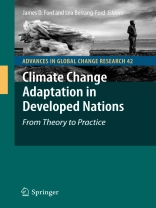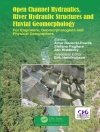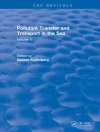It is now widely accepted that adaptation will be necessary if we are to manage the risks posed by climate change. What we know about adaptation, however, is limited. While there is a well established body of scholarship proposing assessment approaches and explaining concepts, few studies have examined if and how adaptation is taking place at a national or regional level.
Cuprins
Section I: Introduction and Overview.- Section II: Adaptation in the Public Health Sector.- Section III: Adaptation in the Industrial Sector.- Section IV: Adaptation in the Urban Environment.- Section V: Adaptation in the Agricultural Sector.- Section VI: Adaptation in Rural and Resource-dependent Communities.- Section VII: Future Directions.- Index.
Cumpărați această carte electronică și primiți încă 1 GRATUIT!
Limba Engleză ● Format PDF ● Pagini 492 ● ISBN 9789400705678 ● Mărime fișier 6.0 MB ● Vârstă 02-99 ani ● Editor James D. Ford & Lea Berrang-Ford ● Editura Springer Netherland ● Oraș Dordrecht ● Țară NL ● Publicat 2011 ● Descărcabil 24 luni ● Valută EUR ● ID 4467582 ● Protecție împotriva copiilor DRM social












